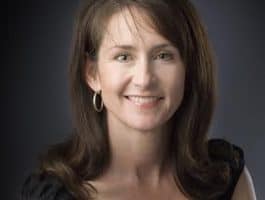
Parenting 911
It's hard being a parent. Chris and Michelle Groff recall the night friends awakened them at 2:30 a.m. to tell them their son had broken into their car. Shocked and confused by their son's behavior and revealed drug abuse, the Groffs began questioning themselves and concluded that Christ was the answer to their son's problems.
Show Notes
About the Host
About the Guest
-
It's hard being a parent. Chris and Michelle Groff recall the night friends awakened them at 2:30 a.m. to tell them their son had broken into their car. Shocked and confused by their son's behavior and revealed drug abuse, the Groffs began questioning themselves and concluded that Christ was the answer to their son's problems.
-
Dave and Ann Wilson
Dave and Ann Wilson are hosts of FamilyLife Today®, FamilyLife’s nationally-syndicated radio program. Dave and Ann have been married for more than 38 years and have spent the last 33 teaching and mentoring couples and parents across the country. They have been featured speakers at FamilyLife’s Weekend to Remember® marriage getaway since 1993 and have also hosted their own marriage conferences across the country. Cofounders of Kensington Church—a national, multicampus church that hosts more than 14,000 visitors every weekend—the Wilsons are the creative force behind DVD teaching series Rock Your Marriage and The Survival Guide To Parenting, as well as authors of the recently released book Vertical Marriage (Zondervan, 2019). Dave is a graduate of the International School of Theology, where he received a Master of Divinity degree. A Ball State University Hall of Fame quarterback, Dave served the Detroit Lions as chaplain for 33 years. Ann attended the University of Kentucky. She has been active alongside Dave in ministry as a speaker, writer, small-group leader, and mentor to countless wives of professional athletes. The Wilsons live in the Detroit area. They have three grown sons, CJ, Austin, and Cody, three daughters-in-law, and a growing number of grandchildren.
-

Chris Groff
Chris was the Executive Director of Parenting by Design for 10 years, a co-author of its content and materials, and a co-leader of the Parenting by Design seminars. Parenting by Design was a faith-based, nonprofit organization devoted to providing biblical parenting education through live seminars, DVD’s and online learning, as well as through CD’s, downloadable audios, newsletters, books, blogs, and other social media content. Chris and his wife, Michelle, felt called to establish Parent...more
Michelle Groff
Michelle was a co-founder of Parenting by Design with her husband, Chris, and Lee Long. She received her BA from Texas Christian University and her Masters degree in Biblical Counseling from Dallas Theological Seminary. She was a co-presenter and co-author of the Parenting by Design content as well. Currently she is a Licensed Professional Counselor, specializing in anxiety, OCD, and all sorts of trauma. Chris and his wife, Michelle, felt called to establish Parenting by Design with counselo...more
Chris and Michelle Groff recall the night friends awakened them at 2:30 a.m. to tell them their son had broken into their car.
Bob: It is 2:30 in the morning and Chris Groff has just learned that his son—his teenage son—is not home; and in fact, is in trouble.
Chris: I call him—I get him on his cell phone. I find him in the median of a road. He’s clearly high. He’s got the wildest story—his friend is driving his car, and the police helicopters are chasing it. That is the level that our life had dropped to. I take a deep breath and think: “Wait! How did we get there?”—I, backtracking in my mind / back to one year old, two year old, three year old—“How did we get here?”
Bob: This is FamilyLife Today for Monday, February 22nd. Our host is the President of FamilyLife®, Dennis Rainey, and I’m Bob Lepine. No parent ever wants to get to the place that Chris and Michelle Groff were, but what can we learn from their experience and from what the Bible has to say about our assignment as parents?
1:00
We’ll explore that today. Stay tuned.
And welcome to FamilyLife Today. Thanks for joining us. I was thinking back—oh, 22/23 years ago, when we were just getting started on FamilyLife Today. I was thinking, “We probably, back in that day, said, ‘You know, it’s hard being a parent today.’” Well, I would just like to correct that. It was easy being a parent back then compared to what it’s like being a parent today.
Dennis: You know, I had that conversation with a friend just a couple of weeks ago, Bob. They were talking about their son going into high school and some of the issues he was going to face in a secular school situation. I just kind of tipped my hat to them, as a couple, because I said, “Whatever we faced, as parents, was nothing—
Bob: Yes.
2:00
Dennis: —“compared to what our children are now facing,”—because five of our six adult children are married and have a family. There are just a lot of challenges today that you and I didn’t have.
We’ve got a pair of guests with us, here on FamilyLife Today—Chris and Michelle Groff join us—who know a little bit about parenting in the midst of some challenges. I’d like to welcome you guys to the broadcast.
Michelle: Thanks so much.
Chris: Thanks—great to be here.
Dennis: Chris and Michelle have been married for 33 years. They have two sons / grown sons, and two grandchildren, and have written a book called Parenting by Design. And you guys have been parents for over 30 years. When you guys started out, did you think you had it nailed?
Michelle: I think I pretty much thought, “If you love your kids, you’ll know how to parent.” I was completely caught off guard by some of the natural reactions that I had that weren’t always the wisest parenting choices.
3:00
A lot of the time, I think I was parenting out of needs that I didn’t even realize.
Dennis: You’re a counselor—do that for a living—and you guys have been ministering in the area of equipping moms and dads over the years. As I was thinking about the broadcast today, I thought about Psalm 127 [verse 4], which compares children are—“Like arrows in the hands of a warrior so are the children of one’s youth.” I think about that and I think, “They hand you the arrows; but there is no instruction manual that comes with the arrows at the time, it appears, to teach you how to be an archer.”
Chris: You know, each of those arrows has a little bit of a different bend to it—and they fly a little differently. You have to get to know the shaft of your arrows, in fact, in order to be able to hit the target.
Dennis: Yes. Barbara and I—
4:00
—we were kind of like you, Michelle—kind of felt like: “Yes, this is going to be a challenge. We see other people have struggled, but we’ve got it nailed.” Bob, were you the same way when you and Mary Ann started?
Bob: Well, Mary Ann and I had both been camp counselors before we had gotten married. So, I thought parenting was going to be a cinch because, basically, I’d led kids at camp for summers. My approach to parenting was: “If you can just keep them happy, and singing some songs at the dinner table, and all of that, how hard can that be? They’ll love you.”
Dennis: “Piece of cake”; right?
Bob: Yes; right.
Dennis: No doubt about it! Well, it’s not quite the piece of cake that we envisioned. In fact, you all had two sons. It was one of those sons who brought some of his drama home one day that got your attention, big time.
Chris: Yes; that’s right. When we had our first child, I was winging it. When our youngest son was 16 years old, and we got that knock on the door at 2:30 in the morning, it shattered those dreams—
5:00
—you know—that it would all turn out well and that it would—they’d end up in ivy league schools with great jobs and corner offices.
Dennis: You thought you were doing a pretty good job at that point.
Chris: You know, I don’t know that I even thought about it enough, Dennis. It’s crazy to say that; but I do know that, when we opened the door, and we saw the friend and his son—and they started laying out the events of that particular night, which was just a continuation of some previous pretty wild behavior—I was dumbfounded—just dumbfounded.
In the first chapter of the book, Michelle talks about like: “This is clearly mistaken identity. This could not be our little, toe-headed child that rolled around on our living room rug when he was three years old.”
Bob: Michelle, let me back this up from this knock on the door that happened back in 2003. How old were your boys at this time?
6:00
Michelle: Sixteen and eighteen.
Bob: And if we had looked at your family from the outside, would we have seen any indication that there was any drama going on in the family?
Michelle: You know, it’s ironic because this son was an honor roll student—had been on the honor council. I think you would have probably seen a family that was pretty caught in defining their worth in a secular way. Even though we were believers, we wandered away from the foundation of what was important; and I think you would probably see us as your pretty average family.
Bob: Church-going family—you’re involved in trying to do the right things and point your kids in the right direction—but I’m hearing a little bit of shallowness in all of that. Is that accurate?
Chris: Oh, yes.
Michelle: Not a little—a lot.
Dennis: So, what was getting your attention in those days?
7:00
Chris: Well, we had been on a pretty good run, honestly—financially/socially. We were drifting into a purely secular—money, power, beauty, fame—those were the things we were seeking. That’s what our culture was pushing us to, and we were doing pretty well at it.
Dennis: Bob asked you to take a step back from what happened at 2:30 in the morning in your home. I guess, after hearing you describe kind of the picture of where you were around that time, spiritually-speaking, I’d want to take another question to go backward a bit and say: “When did this drift start? Did you start on the right track on your marriage? Were you off on the right journey together, or were you off from the very beginning?”
Chris: Well, I was not a believer in college; so I sowed some pretty wild oats. In fact, my last semester of my last year—there was kind of a cute girl in my basic music class that I took a shine to.
8:00
We started dating, and it was Michelle. Michelle said, “We’re not going to keep dating unless you’re a Christian.” Honestly, I didn’t even know what that meant; but I became a believer at that point because I really liked her. I thought, “Well, hey, that’s one entrée to Christianity”; right? But by the time we got married, I was on fire. I was heavily involved in our church. I was chairman of the deacon board, and we were really excited about going into life as a Christian couple.
Bob: Michelle, you’d grown up in a Christian home; right?
Michelle: Not exactly. But I think, during high school, became a Christian. I kind of wanted to have my life at the same time. I think that is probably the biggest lesson from this experience—is really God bringing us to a place of surrender that turned out to be a huge blessing, but it was just—
9:00
—along the way, it’s kind of hard. You have to get the Jaws of Life out and take your hands off of trying to own it yourself.
Bob: You know, what you guys are describing—Dennis, I think of a book that a pastor in Kentucky wrote a few years back. Kyle Idleman wrote a book, where he said: “I’m not a fan of Jesus. I’m a follower of Jesus.” He was differentiating between people who are fans and people who are followers. I wonder—it’s a little like I’ve heard you talk about—people, who spiritually / well, you’ve called them trans-spiritual. They’re just not really sure what their spiritual identity is.
Dennis: Yes. I think the reason we’ve stopped here—is we’re talking about parenting, just around where Chris and Michelle were in their own walks with Christ—is: “This is how you raise a family today. If you’re not purposefully following Jesus Christ, getting into the Book—and I’m talking about the Bible, at this point / the best-selling book in history—
10:00
—if you’re not growing, then, you’re not going to be able to point your children in the right way.”
When you do get to these teenage years—where the proof is in the pudding and the children have to begin to make their own choices—if they haven’t been exposed to the real disease / being a follower of Jesus Christ—then, they are going to be lured away by the world that’s around them. Peer pressure is simply way too powerful / way too strong to take “a good family” that’s kind of playing church and expect your kids are going to have that real disease and become a follower of Christ.
Bob: So, if somebody listening, hears Michelle talking about, “Instead of being surrendered to God, I kind of wanted to be a Christian on my own terms,”—how would you respond to that person? What would be your charge to them?
Dennis: Well, I think I’d pay careful attention to what Michelle said under her breath.
11:00
She said it took a crisis / it took hitting a wall. It took some really desperate circumstances to get your attention. I assume yours, too, Chris; is that right?
Chris: Oh, absolutely. I mean I think what you are hitting on is this whole concept of blessing. I mean, we have so misused that word; you know? We think—and what pulled us away—I would love to blame it all on peer pressure, but we were terrible examples! I mean, we were chasing money and power—okay; beauty / I failed at. [Laughter] We were chasing those things, and we were an example for our kids too. Sure their peers were putting pressure on them, but we didn’t provide that solid anchor that they could come back to and say, “Okay, this is what’s really important.” As we drifted, I think they came with us.
Bob: We’re talking to Chris and Michelle Groff today. They’ve written a book called Parenting by Design: Discovering God’s Original Design for Your Family. Chris—take us to 2:30 in the morning, back in 2003, when you got a knock on your door.
12:00
What happened?
Chris: Okay; so 2:30 in the morning—we’re in bed. The doorbell rings, actually; and I’m going downstairs. Everything that could possibly go wrong is going through my mind because there is no way that, at 2:30 in the morning, the doorbell is every going to be good.
Bob: Right.
Chris: But I didn’t expect that. We opened the door, and there was a dad and another 16-year-old standing on the doorstep. They say: “Your son has stolen all the stereo equipment out of my son’s car. He’s with this other kid,”—it was a kid that we weren’t very fond of and had strict instructions, “You’re not to be hanging with him”; but—“They’re together. They’re in your son’s car, and they’re running from the police right now.”
I take a deep breath and think: “Wait! How did we get there?”—I, backtracking in my mind / back to one year old, two year old, three year old—“How did we get here?”
13:00
So I call him—I get him on his cell phone. I find him on the median of a road. He’s clearly high. He’s got the wildest story. His friend is driving his car, and the police helicopter is chasing it. That’s the level that our life had dropped to.
Bob: Where did you think your son was at 2:30 in the morning?
Chris: Spending the night with another friend.
Bob: Okay.
Chris: He was at another friend’s house—so, initially, I said: “No. He’s not with him. He’s spending the night out.”
Bob: Right. And this was just, Michelle, the beginning of uncovering what had been, I guess, a hidden part / a secret part of his life for a period of time; right?
Michelle: Yes; right.
Bob: So, what did you find out as you started to dig in here?
Michelle: It was like Pandora’s box; you know? I think God was gracious—and I don’t know if I could have handled knowing everything that had been going on all at once. But as Chris is describing—
14:00
—when Chris came back upstairs, I was like: “Well, that’s—they’ve got the wrong kid. That’s just ridiculous!” I thought it was laughable.
And having, over the course of the next 24-hours, uncovered what had been going on—a lot of the deceit and drug use—it just was something that kind of unfolded. You realize: “Wow! This isn’t just, obviously, one kind of night of shenanigans. This is a pattern of behavior.” Yet, he had been very adept at covering that and producing an outward mask of something that was a lot more kind of fitting the mold of what we wanted him to be.
Dennis: He was an honor student—so he was smart. It reminds me of another young lady, who we interviewed here on FamilyLife Today, along with her dad, who was very cunning, very deceptive, and smart.
15:00
She said, “My ability to deceive my mom and dad was greater than their ability to find out the truth.” Kids can do that.
Chris: Oh, and honestly, we don’t want to know the truth. We really want them to—if they’ll give us something to hang our hat on, we’ll take it.
Bob: Well, who doesn’t want to believe the best about their kids; right?
Michelle: Absolutely.
Bob: And your kid was doing well with grades and seemed to be a popular student. Was he going to youth group at church? Was he doing all of that kind of stuff or not really?
Chris: No; he wasn’t doing that stuff. Maybe, that could have been a tip off for us that—“Oh, gosh, I don’t get along with those folks. They’re mean to me,”—you know, whatever—but no, we were all drifting / keep that in mind.
Bob: When you started to trace this back, Chris, what did you find had been—Bob was 16 at the time this happened; right?
Chris: Bob was 16 at that time. Over the course of the next—
16:00
—probably, 60 days probably—we started to uncover what was going on. It turned out that, in sixth grade, he was introduced to marijuana. They were smoking weed on the football field at school at age 12. From there, it progressed. As you dis-inhibit, you become more open. For anybody to say, “Marijuana’s not a gateway drug,” is just crazy. You can ask my son, Bob—he would tell you, “No; it’s clearly that,” because he was seeking something. There was a hole he was trying to fill. He had some social anxiety and school stuff; and marijuana was a good cover for that, initially / a good coping mechanism for him to use. And then—
Dennis: And Chris, I have to stop you there and say, “An 11- or 12-year-old is not that smart.”
Chris: Right.
Dennis: How did he get away with that?
Chris: Probably, we weren’t looking that hard; you know? We would be willing to accept the answers that he gave us.
17:00
You know, if something happened, it—I mean, I’ve talked to literally hundreds of parents. They’ll tell me the story that I, now, know after ten years of experience—they’ll say, “Here’s what I’m seeing, and here’s what he says.” I just—and I hear it over and over. What they really want me to tell them is: “Yes; it’s true. He’s telling you the truth.” And what I know inside is—
Dennis: “He’s lying.”
Chris: —“He’s working you just like my son worked me and Michelle.” It’s heartbreaking, really, to tell them that.
Dennis: It’s really hard for a parent to be a suspicious, distrusting parent—who loves their son or daughter—but there is a side of us, as parents, that you dare not give too much credibility to the child because you have to consider the source. The Book of Proverbs is a great book to read, at this point, because there are really two kinds of people—
18:00
—there are fools and there are those who are wise. A young person has got a lot of foolishness bound up in his heart. The Bible warns about that. It’s the parent that helps drive that foolishness out of the heart; but it demands that the parents be in the game, and be inspecting, and expecting the kind of behavior that the Bible talks about.
Bob: So, Michelle, there had been four years of hidden marijuana use / other stuff he’d experimented with,—
Michelle: Yes.
Bob: —hanging with kids, where this was just how you do life; right?
Michelle: Right. And you know, I think part of what facilitated that deceit is—as I look back, I realize how invested I was in having an identity of being a good parent. You can see that, if you have to own that there might be more going on than what is on the surface, you have to start to really be willing to look inside and really question what your identity is.
19:00
I don’t think I was in a place, at that time, where my identity was rooted in Christ. I think it was rooted in how I appeared to the people around me, and being seen as a good mom, and somebody who was involved in their kids’ lives; and this just didn’t go with that. It was really easy to go: “I can’t face that. So, I’m just going to go with whatever he tells me.”
Chris: I think that’s really when a parent needs to be suspicious; but their identity is tied up in being a great parent, and they are starting to see cracks or fissures in the wall. What you really need—and what we’ve seen over the ten years of Parenting by Design—what we saw was, “You really need a community.” You need some people you can talk to because, when we put people in small groups, and a parent would say, “Well, here’s what I’m seeing,” it was so obvious to the others.
20:00
They could say, “Well, actually, it looks like your son is acting out.”
Dennis: You’re talking about somebody calling you out, at that point.
Chris: Yes; and you need that because your brain is—
Bob: Yes.
Chris: —not working correctly.
Bob: There is this word—and the old saying is: “It’s not a river in Egypt, but we’re talking about denial.” That’s—it takes a community to pull people, who are in denial, back to reality.
Chris: And what’s the first thing you do?—when you start to see those cracks and fissures is—you don’t want anybody else to see it. So, you pull out of community.
Bob: Right.
Dennis: You know, we laugh about what a famous politician said about, “It takes a village to raise a child.” Well, it’s the truth.
Chris: It’s the truth.
Dennis: It does take a small community of parents, who get together.
You don’t know this about us—unless you’ve listened to our broadcast over the years—but we’ve shared with our listening audience.
21:00
We had a child who struggled for a period of time, and there were some small groups that we were in. Barbara was in a group with several moms, where all of those moms had children who were struggling around the same issue.
Truthfully, I do not know how a parent, who is not plugged into those kind of groups, makes it because, when your child does / when the wheels come off, and you’re facing a child at 2:30 in the morning, and 60 days after that, where you’re finding out there’s four years of drug abuse—was he, also, stealing, habitually?
Chris: Oh, yes—had to support the habit. By that point, he’d moved on from marijuana to cocaine—so that’s a little more expensive.
Dennis: So, he had a hard drug he was dealing with.
Bob: Yes.
Chris: Right.
Bob: You know, I’m thinking that this is where it would be helpful for a lot of parents—if they had an opportunity to get together with a group of other parents, who were raising teenagers—
22:00
—just to be able to sit down and, maybe, go through a book like the book that you guys have written, Parenting by Design—just to talk through, “What are the real issues that you are going through?” as parents. Chris and Michelle, you have, in your book, kind of mapped out for parents: “What are the things we ought to be focused on as we guide our kids through the teen years?”
We’ve got copies of the book, Parenting by Design, in our FamilyLife Today Resource Center. You can go, online, at FamilyLifeToday.com to get more information or to order a copy of the book from us—again, the website: FamilyLifeToday.com. You can also order by phone. Our number is 1-800-FL-TODAY—1-800-358-6329. That’s 1-800-“F” as in family, “L” as in life, and then the word, “TODAY.”
One more thing before we’re done—we are asking our listeners whether you would consider being one of 20 people in their state—who would join us and become Legacy Partners, helping to support the ministry of FamilyLife Today in your community.
23:00
We’re praying that, in every state where FamilyLife Today is heard, there might be 20 new Legacy Partners who would sign up and help support this ministry on a monthly basis. When you become a Legacy Partner, you really become part of the FamilyLife Today team. Your monthly support is what helps cover the cost of producing and syndicating this daily radio program.
So, if that’s something you’d being willing to do, just go to FamilyLifeToday.com—click the link that says, “DONATE.” The information about becoming a Legacy Partner is available right there. Or call 1-800-FL-TODAY and say, “We’re ready to sign up and be a part of the team as a Legacy Partner.” We’ve got a welcome kit we’ll send out to you; and then, we’ve got resources we’ll make available throughout the year as our way of saying, “Thank you for your support of this ministry.” We want to provide support back to you to help strengthen your marriage and to help you as you raise your kids.
24:00
Again, sign up as a Legacy Partner, online, at FamilyLifeToday.com; or call 1-800-FL-TODAY and join us and become a Legacy Partner.
Now, tomorrow, we’re going to continue to hear from Chris and Michelle Groff about how they made it through the teen years and what they learned along the way. Hope you can tune in for that.
I want to thank our engineer today, Keith Lynch, along with our entire broadcast production team. On behalf of our host, Dennis Rainey, I’m Bob Lepine. We will see you back next time for another edition of FamilyLife Today.
FamilyLife Today is a production of FamilyLife of Little Rock, Arkansas. Help for today. Hope for tomorrow.
We are so happy to provide these transcripts to you. However, there is a cost to produce them for our website. If you’ve benefited from the broadcast transcripts, would you consider donating today to help defray the costs?
Copyright © 2016 FamilyLife. All rights reserved.
1



